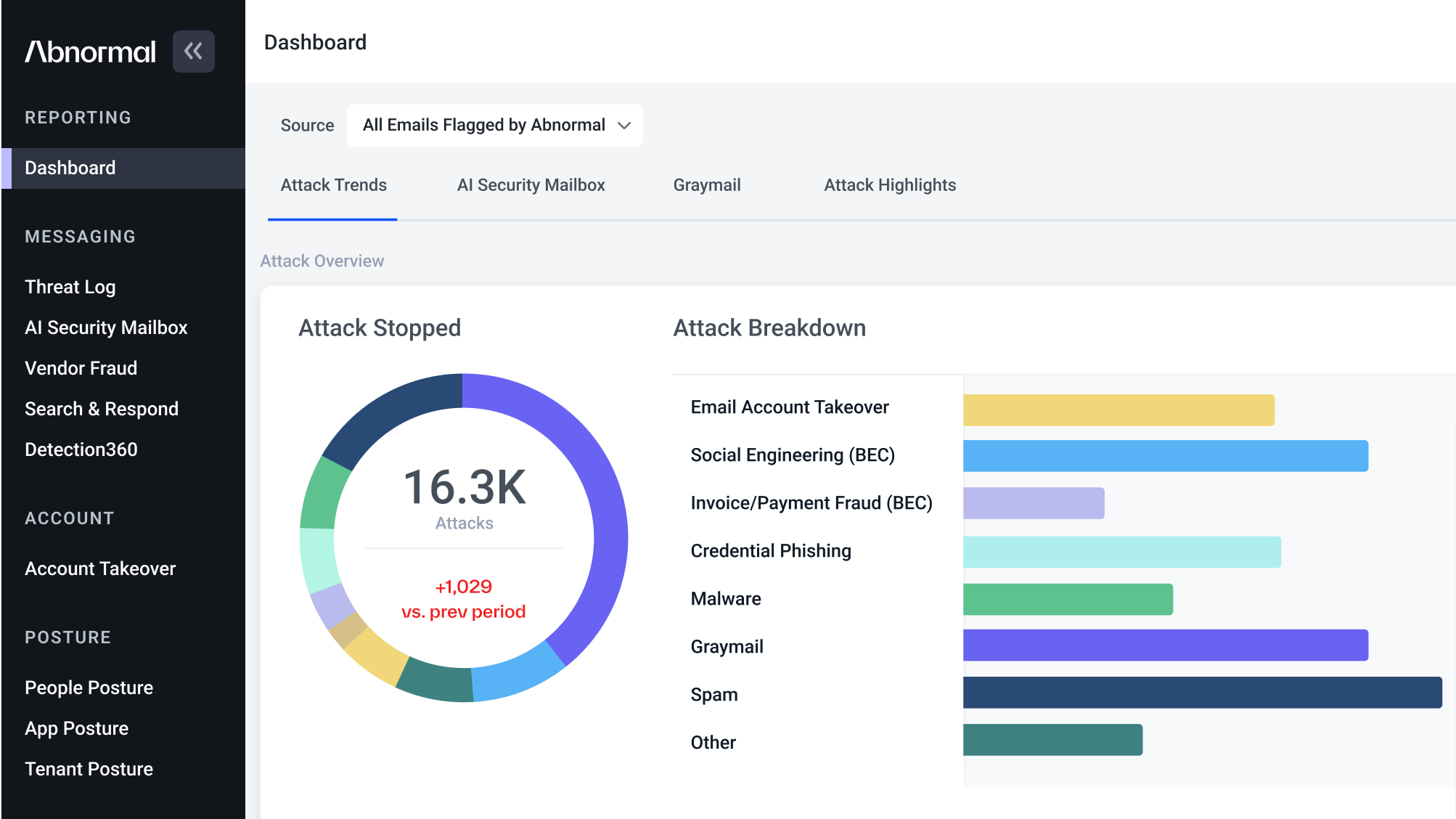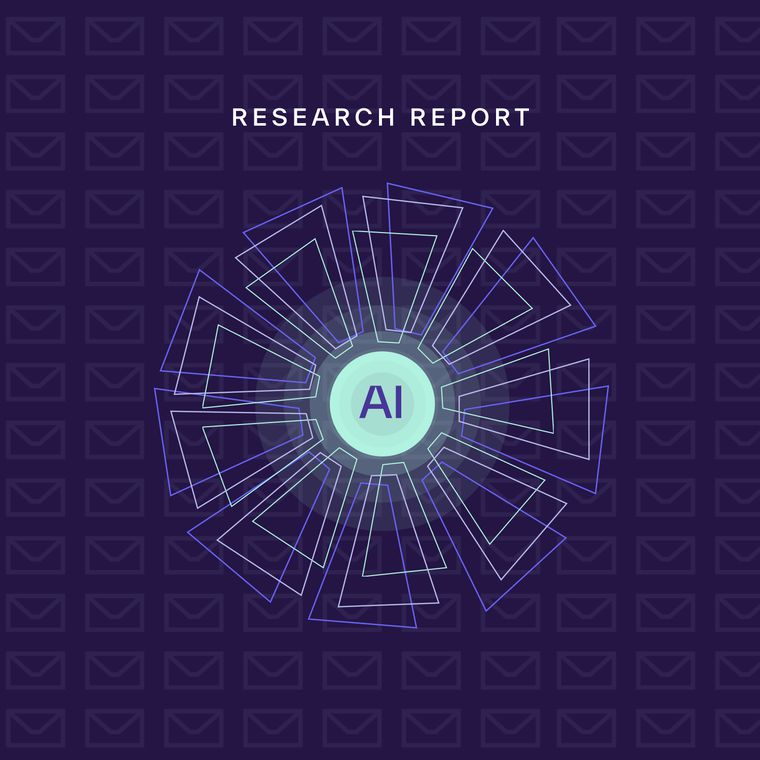Business Email
Compromise (BEC)
Business email compromise is one of the most financially devastating cybercrimes, causing nearly $3 billion in losses in 2023 alone.
Leveraging social engineering and text-based emails with no traditional indicators of compromise, cybercriminals evade legacy email security solutions and manipulate targets into divulging sensitive information or completing fraudulent financial requests.

Business Email Compromise by the Numbers
AI technologies offer threat actors the perfect bar for mixing malicious cocktails that are targeted, unique, and generated at scale—think spear phishing and business email compromise attacks on steroids.”
— Osterman Research
Download the Report

Anatomy of a BEC Attack
Real-World Example of Business Email Compromise
How BEC Works
A standard BEC attack has two common traits:
- Attackers impersonate a trusted identity like an executive or vendor, either by compromising their account or creating a convincing lookalike.
- They use urgency to make an innocuous request: paying an invoice, logging into an account, downloading a file, or sharing data.

What BEC Looks Like
In this example, an attacker compromises a trusted vendor’s legitimate email account. They use the account to request all future invoices be paid to a different bank account, attaching a branded PDF with updated financial information. At first glance, the email comes from a legitimate sender, and it doesn’t have any malware or suspicious links. It can bypass a traditional email security solution and trick an unsuspecting recipient.
See more examples of real BEC attacks

PROBLEM
Generative AI Makes BEC More Effective and Scalable
91% of security professionals reported experiencing AI-enabled cyberattacks in the past six months.
Generative AI Makes BEC More Effective and Scalable
91% of security professionals reported experiencing AI-enabled cyberattacks in the past six months.
Subheading text goes here

Asana Projects Contain Sensitive Data
Asana Projects Contain Sensitive Data
Generative AI enables scammers to craft unique email content quickly, making detection difficult for traditional security software.

Limited Visibility into Asana Access
Limited Visibility into Asana Access
AI simplifies the creation of sophisticated social engineering threats, empowering even novice cybercriminals to up-level their attacks.

Traditional Solutions
Fall Short
Traditional Solutions
Fall Short
Malicious AI tools like WormGPT and FraudGPT are designed specifically for criminal activities, enabling attackers to convincingly compose deceptive content.
See examples of real email attacks generated by AI
PROBLEM
How to Defend Against Business Email Compromise
How to Defend Against Business Email Compromise
Subheading text goes here
Asana Projects Contain Sensitive Data
Asana Projects Contain Sensitive Data
Support a Culture of Healthy Skepticism
- Because attackers have an untold number of strategies for deceiving your workforce, employees should be encouraged to approach some requests with a reasonable level of suspicion. They should also feel comfortable pursuing external verification via means other than email.
- Foster an environment where the unofficial cybersecurity motto is “Better safe than sorry.”
Limited Visibility into Asana Access
Limited Visibility into Asana Access
Perform Social Engineering Penetration Testing
- Assess workforce susceptibility to common social engineering attacks by sending emails that leverage the same tactics real-world attackers use and observe whether employees engage.
- Social engineering penetration testing enables you to evaluate the effectiveness of your security awareness training, compliance with security policies and protocols, and the strength of your company's network security controls.
Traditional Solutions
Fall Short
Traditional Solutions
Fall Short
Implement the Right Technology
- The most effective way to protect your workforce is to invest in modern technology that proactively blocks attacks.
- Unlike a SEG, an API-based security solution uses AI-native detection engines to ingest, analyze, and cross-correlate behavioral signals to spot anomalies in email patterns that indicate a potential attack. It then automatically remediates malicious emails to prevent end-user engagement.
Frequently Asked Questions About BEC
Related Resources
Blogs
Discover the latest BEC threats, industry updates, and developments in cybersecurity solutions.
Abnormal Intelligence
Explore examples of real BEC attacks stopped by Abnormal and learn about the newest trends in cybercrime.
Webinars
Hear from industry experts and leading CISOs about the threat of BEC and how to protect your organization.
White Papers
Get valuable insights into the threat landscape and learn actionable advice on how to respond to evolving BEC attacks.
Get the latest insights on business email compromise
See the Abnormal Solution to the Email Security Problem
See for yourself how Abnormal AI provides comprehensive email protection against attacks that exploit human behavior. Schedule a demo today.
Request a Demo
Request a Demo
















